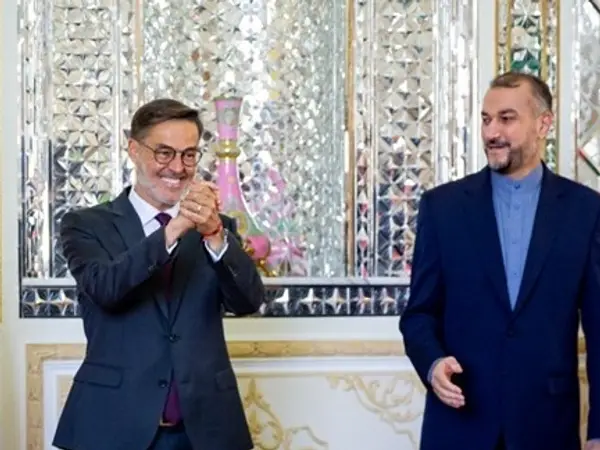Iranian media and pundits are questioning the government's planned 20-year cooperation agreement with Venezuela and the 25-year strategic agreement with China.
Foreign minister Hossein Amir-Abdollahian said Monday that a 20-year cooperation agreement would be reached with Venezuela during President Nicolas Maduro’s trip to Iran in the coming months. While in Moscow this month, Amir-Abdollahian said Iran was ready for a strategic partnership with Russia.
Tehran and Beijing signed a 25-year strategic cooperation agreement in March under which Iran hopes to attract Chinese investments and bolster diplomatic support. Beijing has balanced a willingness to risk United States sanctions in some areas – especially by continuing to buy Iranian oil – against the strategic interest of many Chinese entities in US markets and by its developing links with Gulf Arab countries and Israel.
Iran’s leaders are keen to show the public that the country is not isolated despite the US ‘maximum pressure’ sanctions imposed since 2018, which led to many international companies, especially energy majors including Total and Royal Dutch Shell, leaving Iran in fear of punitive action by Washington.
But the media is far from convinced. Shargh, the reformist newspaper, Monday quoted Majid-Reza Hariri, chairman of the Iran-China Chamber of Commerce, that the agreement with China has not led to tangible results.
"Not one trade agreement, including in the mining sector, which is one of the areas [of interest for Iran], has been signed so far," Hariri said. He suggested Iranian mining had potential for investment of over $80 billion and the oil sector $400 billion.
In a commentary Wednesday, the reformist Aftab-e Yazd newspaper argued that a long-term agreement with Venezuela could be justified only if Venezuela had considerable global influence, was a strong economy and a good export market, and was able to help Iran circumvent US sanctions or process international financial transactions.
A common antipathy to the US was no justification, the commentary said. "Iran cannot count on Venezuela's help… Venezuela is in deep political crisis and its political system may collapse any minute to give way to a pro-Western government which will mean the agreement with [Iran] will become obsolete.” Aftab-e Yazd urged parliament to “prevent the possibility of damage to the country.”
Speaking to the Iranian Students News Agency (ISNA) Wednesday, former Iranian ambassador to Bolivia, Reza Tabatabaei said Venezuela, which also faces US sanctions, needed the agreement more than Iran.
Tehran could help Caracas sell oil, Tabatabaei suggested, even though “these types of agreements are more a political message than economic.” Facing challenges from the opposition, the Maduro government might turn its back on the agreement to make concessions to the US and help the president stay in power, Tabatabaei argued.
Tejarat newspaper in a commentary Tuesday suggested Tehran might see opportunities to accept payments from Venezuela’s gold reserves, thereby avoiding the dollar. In April there were reports Iran was receiving gold for helping cash-strapped Venezuela rebuild refineries.
